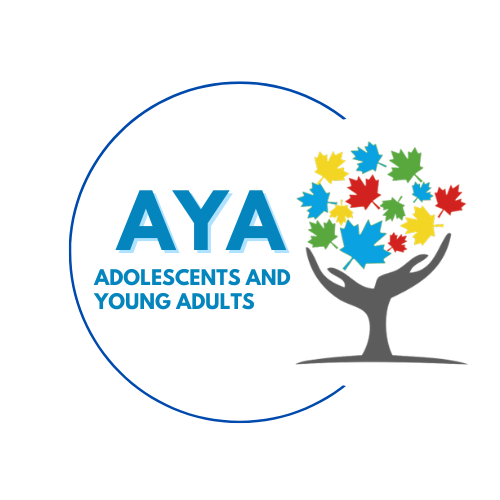Go to Health Care Provider version
| Diagnosis | B-Cell Leukemia, Non-Hodgkin's Lymphoma, B-cell Acute Lymphoblastic Leukemia, Diffuse Large B Cell Lymphoma, High-grade B-cell Lymphoma, Primary Mediastinal Large B-cell Lymphoma (PMBCL), Mantle Cell Lymphoma | Study Status | Open |
| Phase | I |
| Age | 1 Year and older | Randomisation | NO |
| Line of treatment | Disease relapse or progression |
| Routes of Treatment Administration | Biological: CLIC-2201 |
| Last Posted Update | 2025-07-02 |
| ClinicalTrials.gov # | NCT06208735 |
International Sponsor
British Columbia Cancer AgencyPrincipal Investigators for Canadian Sites
The Hospital for Sick Children - Dr. Joerg KrugerCentres
Study Description
 This study is eligible for STEP-1 funding. Find more information here.
This study is eligible for STEP-1 funding. Find more information here.

This is an early-phase clinical trial testing a new kind of treatment called CLIC-2201. It uses a patient’s own immune cells, which are specially modified to better recognize and fight certain types of cancer that affect B cells. This treatment is being offered to patients whose cancer has come back or has not responded to other treatments.
Inclusion Criteria
Cohort A (B cell lymphoma):
- Must be 18 years of age or older of age at time of consent
- You have B cell lymphoma that has come back or hasn’t gotten better with other treatments
- You’ve already tried at least two treatments, or had a stem cell transplant, or CAR-T therapy before
- You meet the necessary organ function and bloodwork requirements
- You must be up and about at least half of your waking hours
- If you could become pregnant or get someone pregnant, you agree to use birth control for a year after the treatment
Cohort B (B-ALL):
- Must be between 1 and 21 years old, and you (and/or your parent or guardian) agree to join the study
- You have B-cell acute lymphoblastic leukemia (B-ALL) that has come back or hasn’t gotten better with other treatments.
- You’ve already tried at least two treatments, or had a stem cell transplant, or CAR-T therapy before
- If you had a treatment that targeted CD22, your cancer must still show signs of that marker
- You meet the necessary organ function and bloodwork requirements
- You must be up and about at least half of your waking hours
- If you could become pregnant or get someone pregnant, you agree to use birth control for a year after the treatment
- You are okay with a bone marrow biopsy before starting the study
Other inclusion and exclusion criteria may apply and will be discussed with you by the study team.
Publications
Both Cohorts A and B
- Any uncontrolled or serious active infection at the time of enrolment.
- Active autoimmune disease requiring immunosuppressive therapy within 4 weeks of enrolment.
- Live vaccine ≤6 weeks prior to enrolment
- Active Graft Versus Host Disease (GVHD) requiring systemic immunosuppressive therapy within 4 weeks of enrolment.
- Treatment with any of the following in the specified time period before leukapheresis:
- Allogeneic HCT within 3 months,
- Autologous HCT within 3 months,
- CD19 CAR-T cell infusion within 3 months,
- Donor lymphocyte infusion (DLI) within 3 months,
- Bendamustine within the last 6 months,
- Any investigational agent within 30 days or 5 half-lives (whichever is shorter),
- Systemic administration of therapeutic dose corticosteroids (>20 mg/day prednisone or equivalent for adults and ≥ 12 mg/m2/day for paediatric participants) within 7 days prior to leukapheresis.
- Immunosuppressive therapies (i.e., calcineurin inhibitors, methotrexate, mycophenolate, rapamycin) within 4 weeks.
- Oral chemotherapy agents (i.e., venetoclax) within 5 half-lives. An exception to this is that bruton tyrosine kinase (BTK) inhibitors like ibrutinib can be continued in participants with mantle cell lymphoma throughout the trial period.
- Other concurrent malignancy or a prior malignancy treated within the past 2 years, except carcinoma in situ of the skin or cervix treated with curative intent and with no evidence of active disease.
- Concomitant genetic syndrome associated with bone marrow failure such as Fanconi anemia, Kostmann syndrome, Shwachman syndrome or any other known bone marrow failure or immunodeficiency syndrome.
- Active (confirmed by PCR) hepatitis B or hepatitis C at time of screening confirmed by PCR.
- Any Human Immunodeficiency Virus (HIV) infection at time of screening.
- Hypersensitivity to fludarabine or cyclophosphamide.
- Any allergy to gentamycin or its derivatives
- Pregnant or nursing participants.